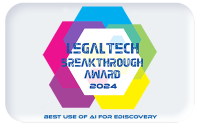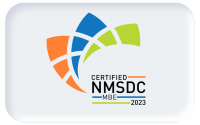In the world of corporate law, litigation management stands as a cornerstone. Each phase, from the initial case assessment to the post-litigation review, is steeped in complexity and nuance.
For those looking to optimize strategic decision-making, amplify efficiency, and control costs, a deep understanding of litigation management key terms and how they are connected within the legal process is essential. This article shines a light on these critical elements, emphasizing their pivotal role in shaping today’s dynamic environment.
Litigation Management Key Terms
Delving into litigation management is much like learning a new language; each term carries its own unique definition and significance. Understanding these terms is crucial for navigating the intricacies of legal proceedings. In this section, we’ll provide clarity around each term, shedding light on their roles and relevance:
- Case Management: Central to litigation, it addresses administrative aspects like scheduling, deadline tracking, file maintenance, and case-related communications.
- Project Management: Applied to legal scenarios, this universal principle ensures cost-effective, efficient progression of cases.
- eDiscovery: A vital component in the digital era, it manages electronically stored information in legal contexts, spanning data collection, compliance, privacy, and initiating litigation holds.
- Document Production: Following eDiscovery, it pertains to the systematic presentation of pertinent documents for opposing counsel, courts, and other stakeholders.
- Litigation Support: An integral operational component of litigation management, focusing on database management, document reviews, and trial preparation.
- Dispute Resolution and ADR: Encompassing methods such as litigation, arbitration, and mediation, while Alternative Dispute Resolution (ADR) emphasizes non-litigious paths for quicker, cost-effective resolutions.
Now that we understand these litigation management key terms, let’s define litigation management as a whole.
What is Litigation Management?
Litigation management is the strategic process of overseeing and coordinating all facets of a legal dispute, making sure every component aligns and works in harmony.
- Case Assessment and Triage: Delving into the case details and the applicable laws. Triage, a form of early assessment, helps determine the potential course and strategy of action while gauging risks versus rewards.
- Planning and Strategy: Crafting a litigation plan, ensuring each resource, from eDiscovery experts to litigators, is effectively utilized.
- Resource Coordination: Aligning internal teams, outside counsel, and vendors. Efficient management of these resources is vital for a streamlined legal process.
- Budget Management and Cost Recovery: Efficiently tracking of all costs, from eDiscovery to legal consultation fees, is crucial. Additionally, understanding avenues for cost recovery can be essential for budget optimization.
- Risk Management: Assessing risks, from legal ramifications to reputational threats, and strategizing around them is pivotal.
- Communication Management: Ensuring consistent, clear communication with all stakeholders, internally and externally.
- Resolution Oversight: Guiding settlement talks, mediating, or navigating the appeals process. The end goal is a favorable outcome for the client.
- Post-Litigation Review: Reflecting on the completed litigation to learn, assess strategy effectiveness, and refine best practices for future cases.
Connecting the Dots: Why is this Important?
Unraveling the intricacies of litigation management isn’t just about showing off your legal vocabulary or being the star of intellectual discussions. It’s about understanding a critical tool that empowers both corporations and law firms in their respective legal ventures. Understanding the interplay of these terms within litigation management aids in achieving:
- Streamlined operations: By understanding how individual components fit into the broader litigation process, efficiency is significantly enhanced. This deep comprehension allows for better allocation of resources and ensures that no step is overlooked. The smoother flow reduces potential hiccups and saves both time and money.
- Informed decision-making: With a clear grasp of each term’s significance, strategies become more effective and precise. When decisions are grounded in a solid understanding of litigation terminology, they are less likely to be flawed or misdirected. This boosts the confidence of all involved parties, from clients to attorneys.
- Effective tool and software selection: Comprehensive knowledge of litigation terms assists in choosing the most apt tools and software. This is especially critical in an era where technology plays a pivotal role in litigation processes. Picking the right tools can dramatically influence the speed, accuracy, and efficacy of the entire litigation process.
- Clear communication: Familiarity with key terms ensures that all stakeholders communicate with clarity and purpose. Misunderstandings or misinterpretations can lead to costly mistakes or delays. When everyone speaks the same ‘language’, it fosters collaboration and ensures everyone is aligned towards a common goal.
- Superior litigation outcomes: The path to outstanding litigation results is paved with a deep understanding of the nuances and intricacies of key terms. This knowledge empowers legal teams to craft winning strategies and anticipate potential challenges. Moreover, it assures clients that their cases are being handled with utmost expertise, increasing their trust and satisfaction.
Final Thoughts
For professionals navigating this terrain, mastering the key terms and their applications is not merely an academic exercise. Instead, it is a necessary foundation for effective practice. By demystifying these terms and processes, we provide the roadmap for both seasoned and budding legal practitioners.
As we move forward in this dynamic legal era, it is clear that a well-grounded understanding of litigation management is essential. Equipped with this knowledge, law firms and corporations alike can approach legal challenges with confidence, clarity, and the assurance of a favorable outcome.

Sara Coley
Author
Share article:
Sara Coley is a Senior Director, Client Services based in Asheville, North Carolina and has been with TCDI since 2012. As a Lean Six Sigma Black Belt, Sara brings a unique perspective to helping clients identify and create efficient processes, helping them streamline their legal operations. Learn more about Sara.





